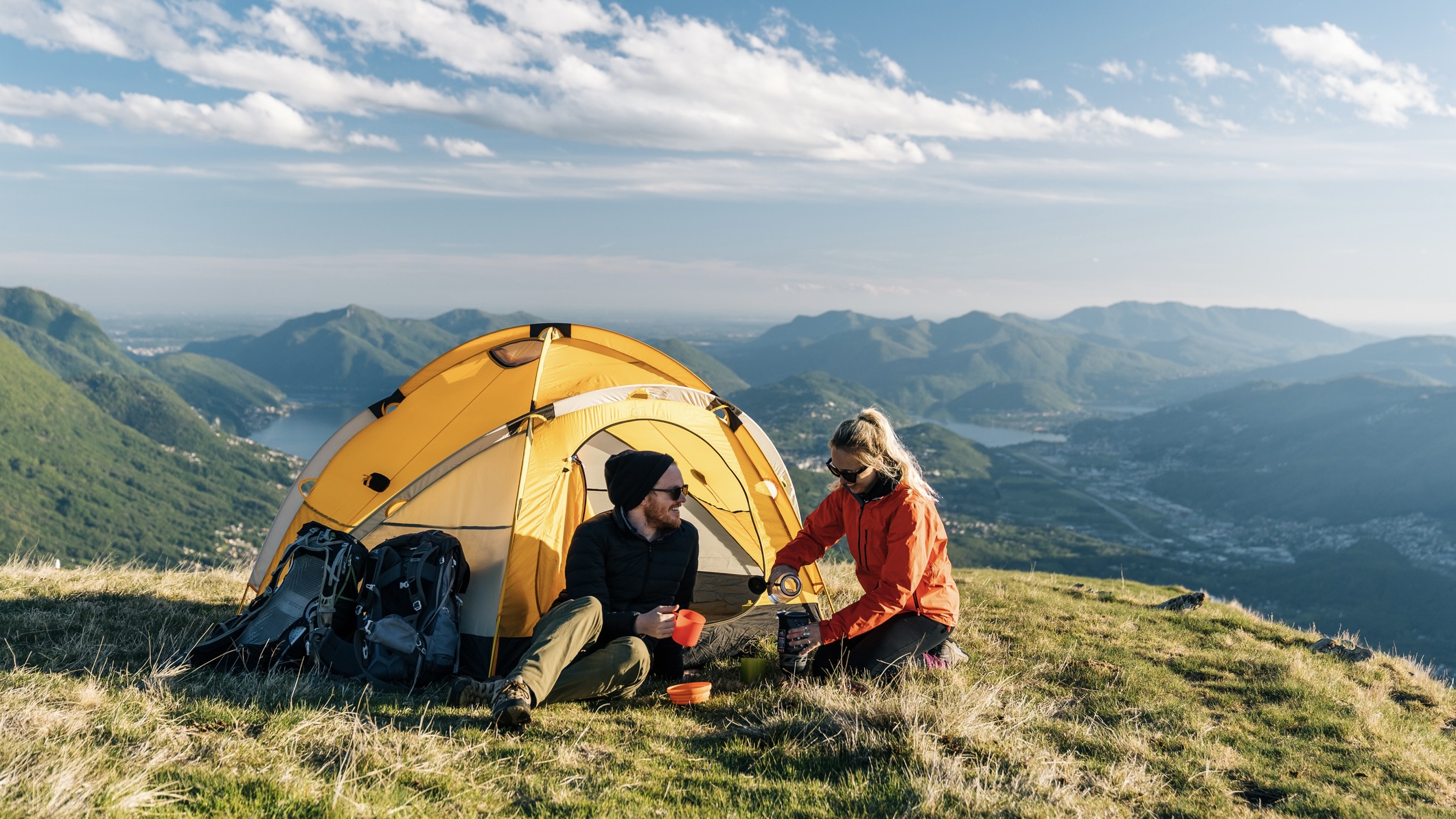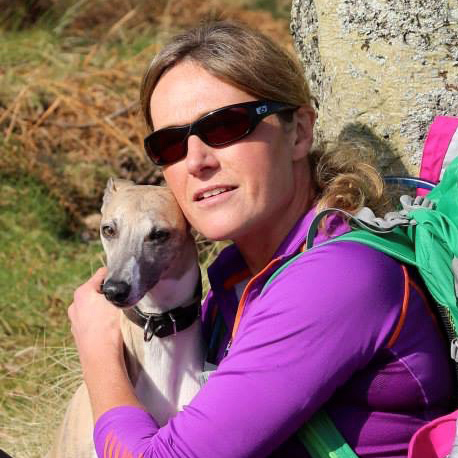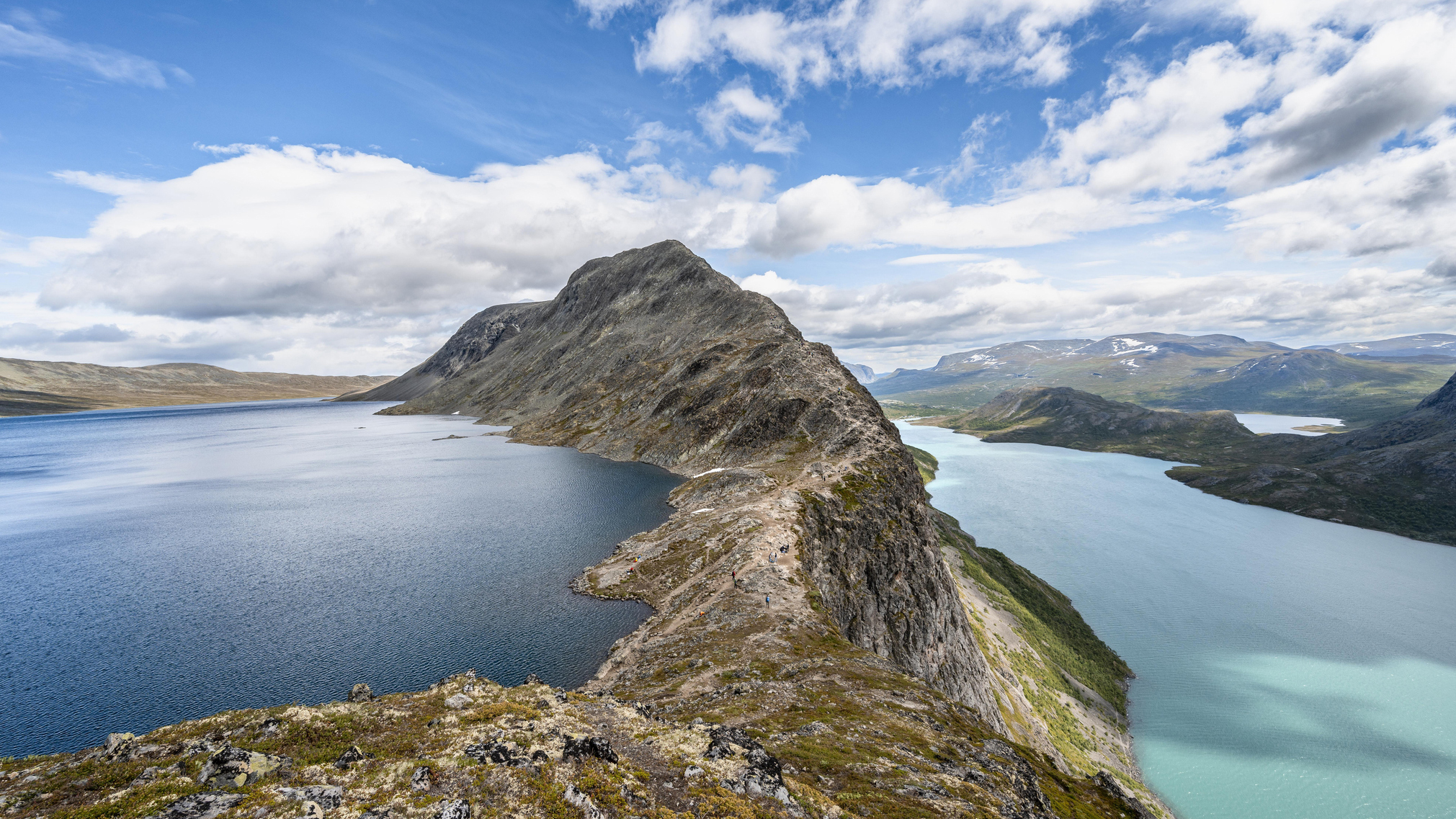10 easy ways to make your camping more sustainable
Reduce your impact on the environment with this guide to a more eco-friendly camping adventure

If, like many people, you are keen to reduce your environmental impact, making your camping more sustainable will appeal. As with any activity, camping has the potential to be damaging to the environment in a number of ways, such as generating carbon, which is known to be harmful to the planet, and creating waste. In addition, leaving waste or causing damage to the landscape can impact the environment.
Here we share 10 easy ways to make your camping more sustainable.
1. Buy less kit
The process of manufacture can have a negative impact on the environment. For example, items such as tents, sleeping bags, camping mattresses and more have a range of eco-damaging costs in terms of carbon output and water use.
There is also a negative impact of transportation of the resources to make the goods and then to deliver the items to retailers and on to consumers.
Buying good quality items that will be long-lasting and only making purchases when you really need them is key to making your camping more sustainable.
2. Buy second hand
If you do need new items for camping, why not search for second hand products? Making use of camping items that are still in good condition but unwanted by someone else, reduces the impact of manufacturing new items and also reduces the waste produced by someone throwing kit away.
3. Swap or sell unused kit
If you have camping products that are not being used, rather than throwing them out, you should consider if you can sell them second-hand or exchange with another camper for an item you do need.
Advnture Newsletter
All the latest inspiration, tips and guides to help you plan your next Advnture!
Landfill sites have been shown to have environmental impacts and we can each reduce waste and do our bit for the planet by cutting our personal trash.
Even if there are items that you feel are past their best for your purposes, there might still be people that will potentially benefit from them. You could give these items to charities and organisations that collect old camping gear for redistribution.
4. Check the labels
When buying camping equipment, you should look at the labels to see if they are made with environmental considerations. You should beware of consumer greenwashing, but being educated – take a look at Good On You and Ethical Consumer , for example – about what is “green” and what is not will help you to choose products that are better for the planet.
Look for eco-friendly labels indicating that products are made with recycled fabrics or parts. Some brands are accredited by eco-friendly certification, such as Bluesign, B Corporation, Fairtrade and Climate Neutral.
Also try to find out if products are made with PFC-free treatments, rather than processes that use Perfluorocarbons (PFCs), which are man-made compounds containing fluorine and carbon. PFCs have been shown to be potent greenhouse gases that contribute to the increased greenhouse gas effect.
5. Borrow instead of buying
If you are starting out as a camper, or you are thinking about changing from campsite camping to wild camping, it could be a good idea to borrow the camping kit from a friend and give it a try first.
You could ask to borrow a tent, sleeping bag, inflatable mattress and camping stove – if you then find that you enjoy camping, you can invest in your own equipment.
By sharing camping equipment among groups of people, you reduce the environmental damage of manufacture.
6. Wash kit less
It’s unlikely you will be washing your tent that frequently, but some people will be keen to clean their sleeping bag and other camping kit such as clothing. You could use a sleeping bag liner to protect your sleeping bag from getting too dirty in the first place and this will be much easier to wash than a sleeping bag.
Also, if you wash camping clothes less frequently you will reduce you impact on the planet. It’s claimed by Fashion Revolution that up to 25% of each garment's carbon footprint comes from the way we wash and care for it.
Some types of fabrics, such as merino wool, are better at reducing the odors of sweat, so they are a good choice if you want to reduce the number of times you wash clothes.
7. Eco-friendly detergents and treatments
As well as reducing the frequency of washing your clothing, you should aim to use eco-friendly detergents.
If you need to rewaterpoof your tent or waterproof jacket and trousers, use treatments that are environmentally friendly. Nikwax, for example, is highly rated for quality and sustainability
8. Stay closer to home
Another way that campers can impact the environment is by driving many miles to reach a campsite, or to start a wild camping trip. Worse still is flying somewhere for a camping holiday.
You could embrace the “staycation" and aim to explore new camping-based destinations closer to your home, or use public transport or your bicycle to reach camping spots.
If you do plan to drive or fly for a camping trip, making the holiday a longer duration is better than doing several shorter trips with lots of mileage.
9. Eat vegetarian camp food
According to a United Nations report, what we eat and how that food is produced affects the environment. Food needs to be grown and processed, transported, distributed, prepared and consumed. Each of these steps creates greenhouse gases that contribute to climate change.
In addition, animal-based foods, especially red meat, dairy and farmed shrimp, are generally associated with the highest greenhouse gas emissions.
The more sustainable diet is to eat more vegetables and vegetable-based meals instead of meat on your camping trips.
10. Leave no trace
Reducing the environmental impact of your camping trips is vital for ensuring that sites remain pristine for future generations. Do not leave waste or litter where you camp and don’t build fires that will burn the ground or, worse still, lead to wild fires.
In fact, burning wood produces organic carbon, which is a complex mixture of compounds. Research has shown that some organic carbon particles are highly absorbent in the near-UV spectrum, and that this affects the global climate balance.
If you are wild camping and will be traveling by mountain bike or on foot, try to stick to paths where possible rather than eroding the ground because it can have impact on the sustainability of flora and fauna.

Fiona Russell is a widely published adventure journalist and blogger, better known as Fiona Outdoors. She is based in Scotland and is an all-round outdoors enthusiast with favorite activities including trail running, mountain walking, mountain biking, road cycling, triathlon and skiing (both downhill and backcountry). Aside from her own adventures, Fiona's biggest aim is to inspire others to enjoy getting outside and exploring, especially through her writing. She is also rarely seen without a running skort! Find out more at Fiona Outdoors.
